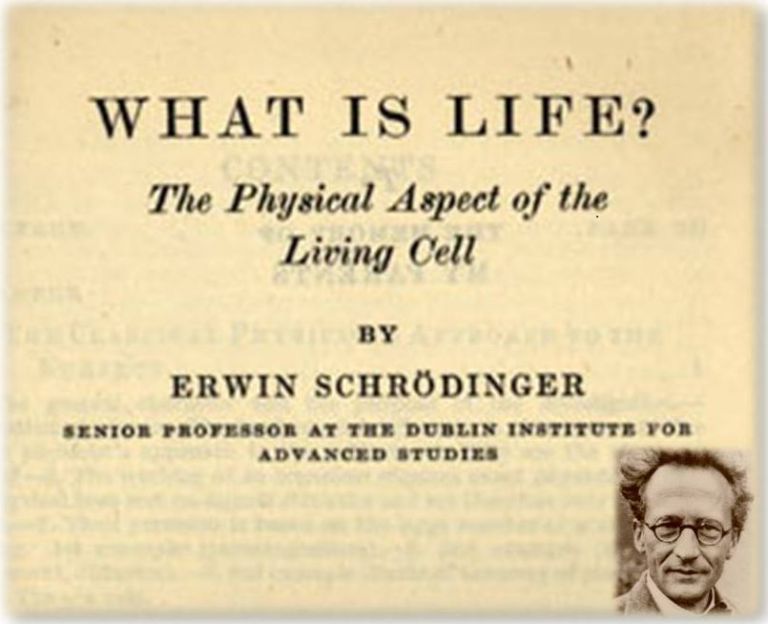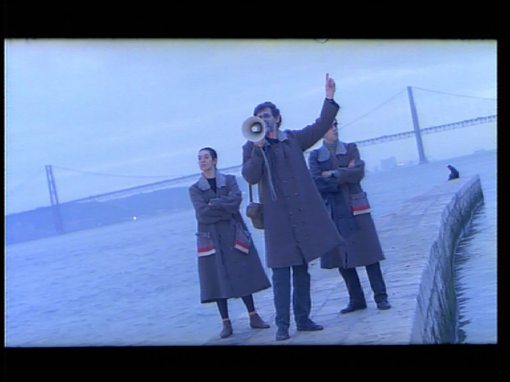[Revised 9/13]
We’re trying to grapple with entropy elsewhere (previous post, Civilization as Entropic GigaGizmo); entropy as a common denominator of all (known, observable) physical systems and energy processes.
The classic simplest example of entropy is your cup of morning espresso you dropped and broke. Nearly impossible to collect every drop of spilled coffee, get it back into the cup, find all the pieces, fix all the cracks, and return to the original unbroken ceramic cup with 100% of the original espresso at its original temperature. Or to do so, would require an almost impossible amount of effort.
Simple reality – every energy-generation process is only partially efficient and gives off HEAT — waste energy, randomized molecular motion (or infrared radiation), energy at its lowest common denominator; gears rust, machines wind down, stuff falls apart, systems degrade, processes spread out. With the upshot that:
Energy is required to make useful energy.

Schrodinger, in his classic tract, What is Life?, coined the term Negentropy to account for the organizing tendencies of life, that appear to cancel or work against entropy.
In the 60s, Prigogine described dissipative structures, evoking the idea that complexity, organized form, may actually be a more effective way of reducing energy gradients.
So varying schools of thought have built on that, suggesting ALL living complexity, including human-based physical structures and organization, is actually just entropy, writ large.
The problem of “Externalization” of environmental impacts in capitalism — waste products, exhaust fumes, pollution, oil spills, junked PV panels and turbine blades, landfills… you get the idea — the costs not being integrated into the cost of production — is nowadays a basic concept in economics and is practically the premise of the whole sustainability movement, and fits well into the entropy paradigm.
“Ecological Economics” and net energy analysis points up this stuff too.
Leading to the question of whether human civilization in toto is not actually an “Entropic GigaGizmo”.
OK maybe that’s a bit extreme, but some people are tempted to go there.
But unlike folks like Schneider and Sagan in their book, Into the Cool, we’re not satisfied with conventional ‘physicalist’ descriptions that leave entropy unbalanced by other factors.

How does entropy gell with the “Hard Question of Consciousness,” that keeps physicists up late at night?
In any case, entropy rules in “closed systems.” If we can assume that the universe is an open system, then what? Entropy is only relatively true?
The relatively unknown Italian physicist Luigi Fantippie mathematically formulated the related and inverse principle of “Syntropy“, linking it to “backward” causation (from the future).
J.G. Bennett, a mathematician and esoteric teacher, talked about a schema of 12 cosmic energies with “upwards and downward movements” analogized loosely to motors and engines, building off Gurdjieff.
Which brings us back to our starting quote:
Without the upward transmission of energies through the intermediary of attention, the universe would give in to entropy.
… Attention is not “mine.” In a moment of its presence, one knows that it does not originate entirely with oneself. Its source is surrounded by mystery, attention communicates energies of a quality the mind cannot represent. One needs to be at the service of conscious attention; one prepares for its advent thru active stillness.
…midway between micro and macro, man has his part to play….
– William Segal, The Structure of Man, 1987.
(Thanks to mjp for the lead.)
Updated 9/13.




